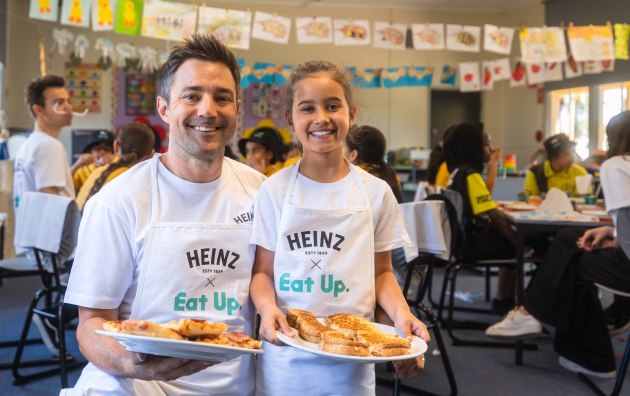Heinz has partnered with national charity Eat Up to donate its Beanz to Eat Up’s school lunch program. A recent survey by Heinz revealed that almost a third of Australian parents have had to budget for and change what they put in their child’s lunchbox due to inflation.
Research published by Foodbank revealed 3.7 million households in Australia experienced food-insecurity in the past 12 months. Foodbank’s 2022 research showed that 1.3 million children in Australia lived in severely food-insecure households. Heinz’s research also indicated that for many Australian kids, recess and lunchtime were the most enjoyable parts of their school day.
To support the partnership, father and daughter duo social-media influencers ‘Ben and Zara’, created Bean Appétit, a budget-friendly online cookbook made by kids for kids, with all the recipes containing five ingredients or less.

“Heinz Beanz can go with just about anything, so we experimented with this nutritious ingredient in the cost-effective recipes. Our favourite would have to be either the Beanz, Salami & Rocket Pizza or the Beanz Ham and Pineapple Scrolls,” said Ben and Zara.
This is Heinz's first year supporting the Eat Up school lunch program, and it will continue to do so for the next three years. Eat Up founder Lyndon Galea said the two companies were committed to driving awareness of the impact of hunger on children’s ability to learn, grow and succeed.
“Our ongoing partnership with Heinz will help us reach our shared goal of providing free school meals that children can look forward to,” said Galea.
The Bean Appétit recipe ebook is available here.







